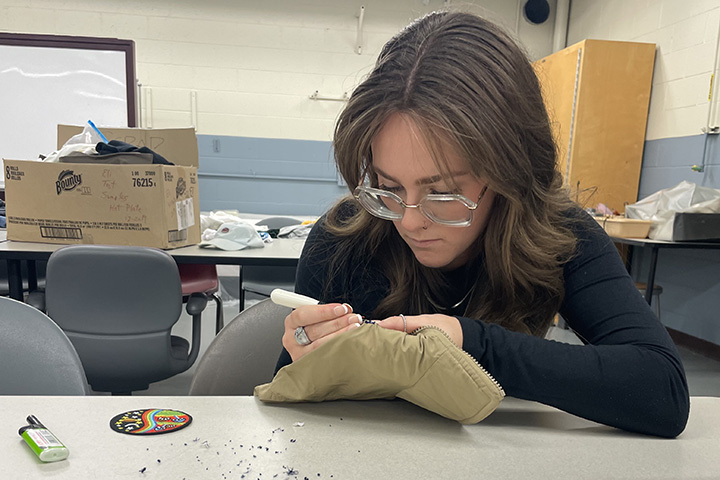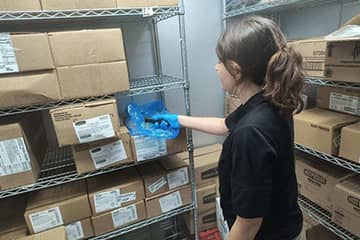Student researches copine-A's role, shedding light on cellular processes and cancer functions
Central Michigan’s second-year Ph.D. student Cody Morrison is working alongside Cynthia Damer, Ph.D., in the Biochemistry, Cellular, and Molecular Biology Program (BCMB) to study a family of proteins called copines found in the soil-dwelling amoeba, Dictyostelium discoideum. Dictyostelium are single-celled organisms, and the Damer lab uses them as model organisms to study and understand cancer cells and cellular processes in humans, who also have copine proteins.
Their research is mainly focused on a protein called copine-A and how it might regulate cellular processes. Through the use of molecular techniques, such as western blotting and RNA sequencing, the Damer lab hopes to elucidate the role copine-A may play in cellular signaling, development, and calcium regulation. Through the use of genetic mutants, they can observe phenotypic differences in cellular processes like growth and signaling inside the amoeba. The researchers in the Damer lab believe that through further research they will be able to develop a better understanding of how cancer functions inside the human body, considering that humans have similar copine proteins.
If you wish to know more about their research, they currently have two manuscripts submitted that should be available for viewing within the next year.
This story is brought to you by the Office of Research and Graduate Studies.




